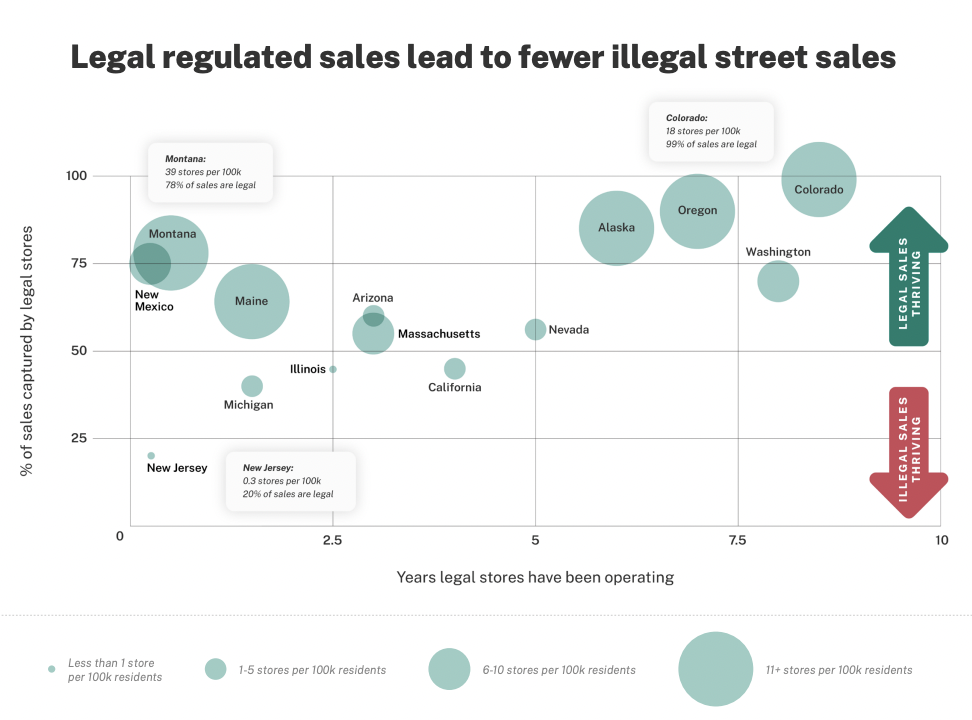
One of the main promises of marijuana legalization is that the reform can help curb the illicit market by providing adults with lawful access to shops where products are tested and IDs are checked. But not all states have had the same experience in fulfilling that promise—and a new report suggests that local opt-out policies are key factors.
Leafly and Whitney Economics teamed up to analyze the relationship between opt-out laws and unregulated sales. The report, released on Thursday, found that states where cannabis shops are more widely available—without as many jurisdictional gaps—have proved far more effective at stamping out the illicit market.
For example, states where there are 20-40 marijuana dispensaries per 100,000 residents have seen the greatest success at competing against illicit sellers, with 80-90 percent of adults reporting that they purchase their cannabis from regulated storefronts.
Via Leafly/Whitney Economics.
In contrast, states where there are fewer than 10 dispensaries per 100,000 residents tends to continue to see a thriving illicit market, where around 30-50 percent of sales happen in the legal marketplace, the report found.
Colorado, Oregon and Alaska stand out as examples of early-adopter states that implemented policies that enabled licensed marijuana shops to become widely
Read full article on Marijuana Moment


